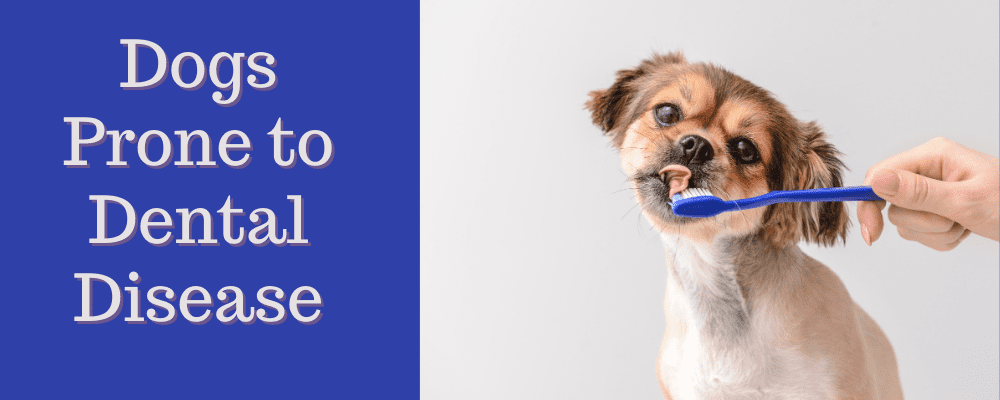Size does matter when it comes to dental disease in dogs. Unfortunately, small breed dogs get dental disease earlier and worse. However, some large breeds like greyhounds are also predisposed to dental disease too
Small and large dogs differ in the type of dental disease they can encounter. Small breed dogs, such as Poodles, Yorkshire Terriers and Chihuahuas, have an increased tendency for dental disease and are especially prone to tartar formation, gum recession, and eventual loss of teeth. In fact, a dog like a Yorkshire Terrier is likely to have lost half of his teeth by the time he is 12 years old.
One study of 1,300 dogs showed that periodontal disease decreases significantly as dogs increase in size. The report, published in the Journal of Veterinary Dentistry in 1994, documented that Toy breeds have high rates of disease when compared with small, medium and large breeds.
In addition, dogs with a flatter facial design, also known as brachycephalics, are also at risk. These may include Boxers, Bulldogs, French Bulldogs, and Shih Tzus. Large breed dogs are more prone to breaking teeth due the the extreme forces they apply to hard chew toys.
Good dental hygiene cannot be emphasized enough. Periodontal disease is preventable, but should it occur, it can be accurately diagnosed and successfully managed with a proper veterinary dental examination and treatment. Regular veterinary visits that include a thorough oral examination and timely professional dental cleanings and home care will help prevent the severe consequences of periodontal disease.
